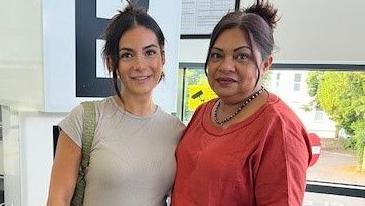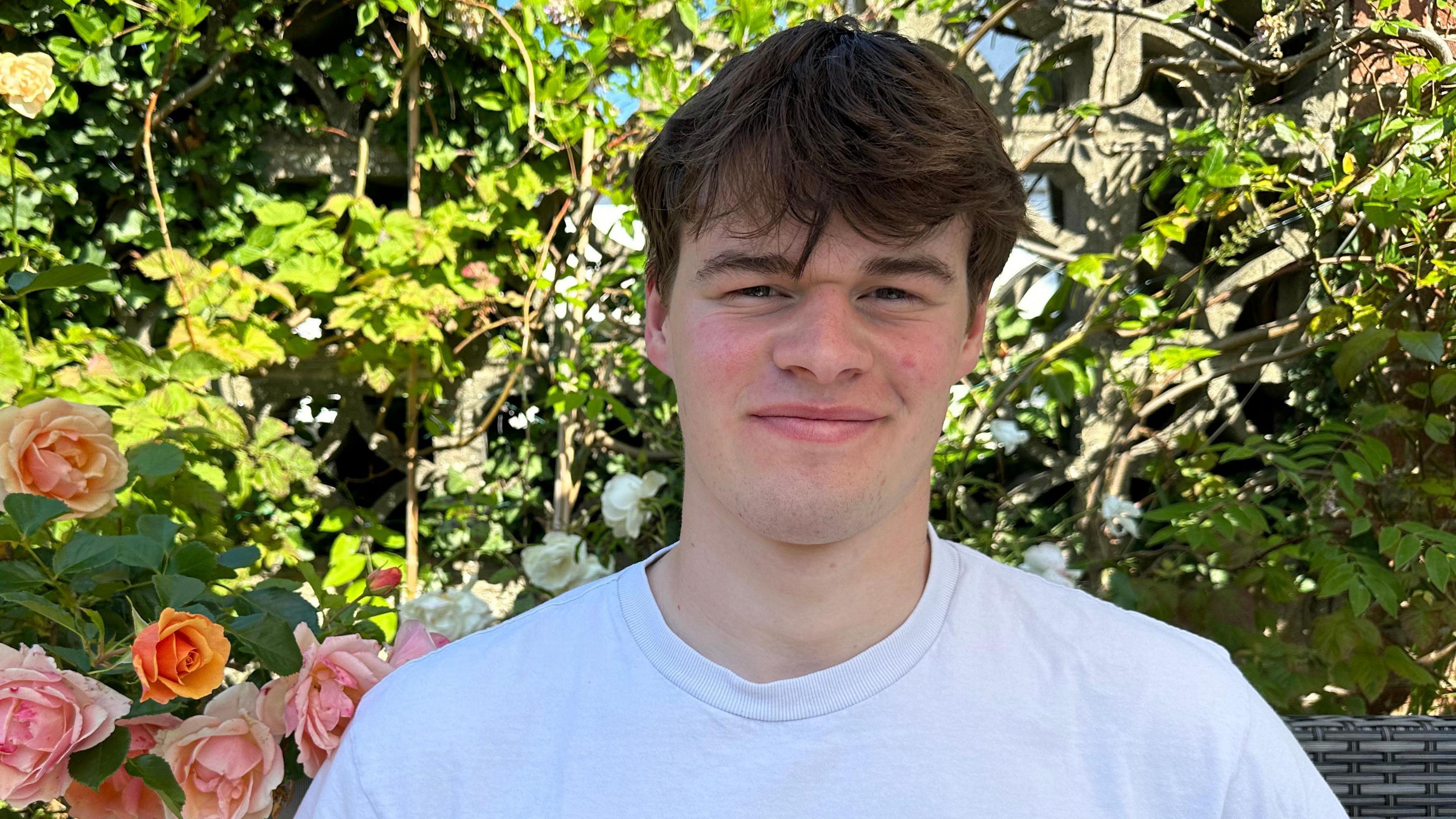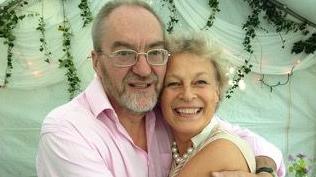Flight attendant supports mum who had stroke

Renée Phippen, a flight attendant, supported her mum Vaishali when she had a stroke
- Published
A flight attendant says her first aid training meant she knew what to do when her mother had a stroke in the middle of the night.
On 12 October Vaishali Phippen, 55, woke to find that she could not speak, her arm was numb and she could barely walk.
Her daughter Renée, 25, said her mother woke her up and her first aid training "just kicked in".
The pair from Plymouth have been raising awareness of the signs of a stroke and the support available for stroke survivors.
She said: “Because of my medical training for my job I luckily know about FAST and what it means."
The FAST acronym can be used to remind people of the key signs of a stroke which are that the face has fallen on one side (F), arm weakness (A) and slurred speech (S) which indicate that it’s time (T) to call 999.
Renée Phippen said she phoned an ambulance straight away but due to the wait a neighbour drove them to the hospital.
Initially medical staff believed it was a viral infection and an MRI scan two weeks later showed she had suffered a stroke.
Vaishali Phippen said: "[The] NHS are doing a fantastic job but I just felt let down."
She said the Stroke Association had supported her and that they introduced her to a stroke survivors group which meets weekly on a Friday.
"Felt very at home there, felt understood," she said about the stroke survivors group.
She said she planned to raise money for The Stroke Association by walking 10,000 steps a day for 130 days.
Jacqui Cuthbert, the Stroke Association’s Associate Director for the South West and Channel Islands, said: “We’re hugely grateful to them both for raising funds for our charity.
Follow BBC Devon on X (formerly Twitter), external, Facebook, external and Instagram, external. Send your story ideas to spotlight@bbc.co.uk, external.
- Published29 June 2024

- Published14 June 2024
